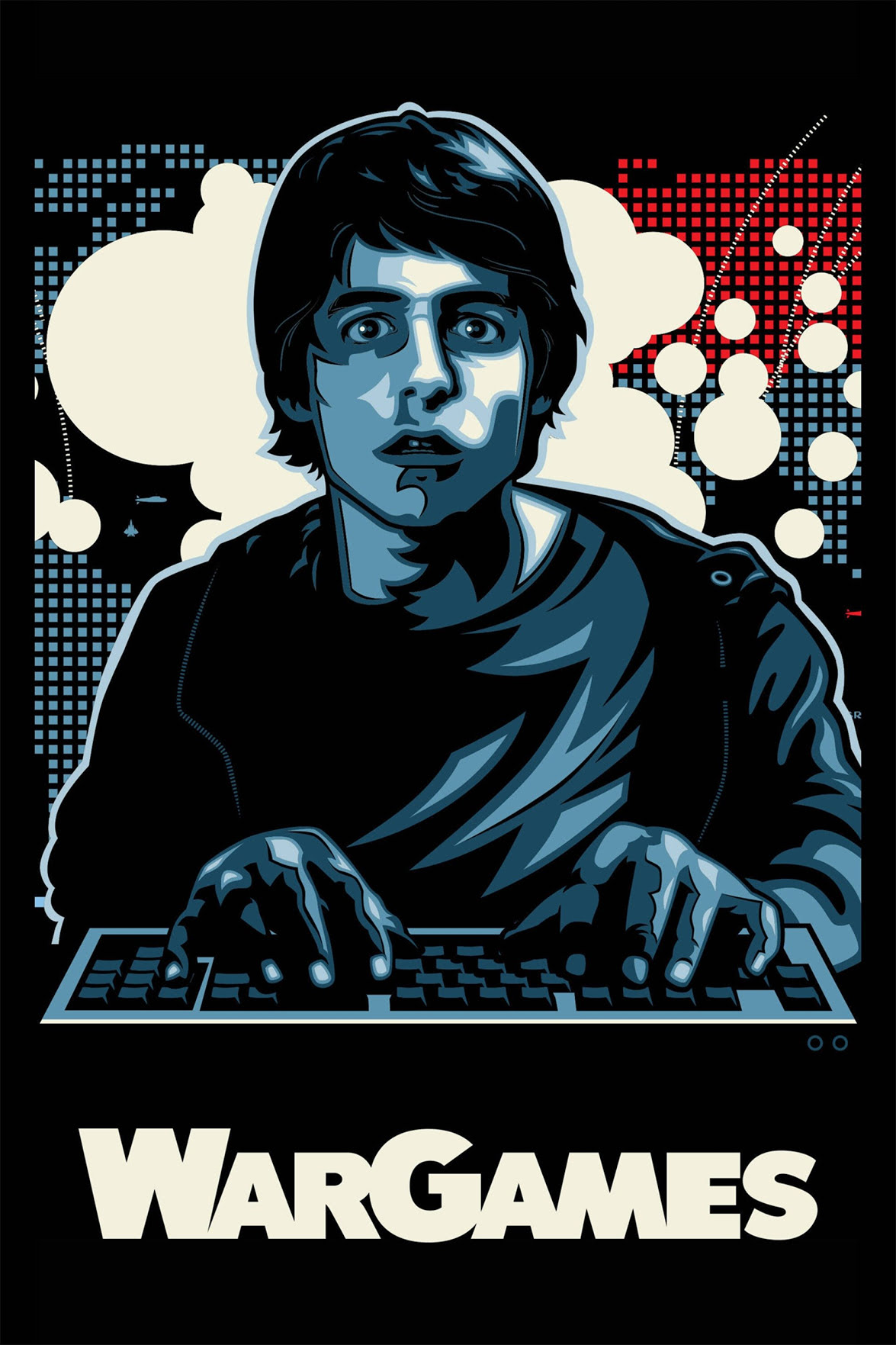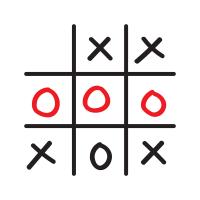 TechnoMonk | in
TechnoMonk | in  Life,
Life,  Love,
Love,  Philosophy
Philosophy  Sun, April 14, 2024 at 2:01PM
Sun, April 14, 2024 at 2:01PM  I am now in my 77th year and quite frequently, in this mostly-retired life I’m living, I wonder how to make the most meaning of my remaining days. I say “mostly retired” because back in 2019, after five years with no earned income, I decided to seek part-time work that would supplement my various and sundry (i.e., relatively-modest) retirement-income streams. So, in the last five years, and because I have a wide range of skills, I have worked three successive, different jobs on our local community college campus. It has been a valuable experience, so far, and keeps both my mind and body active.
I am now in my 77th year and quite frequently, in this mostly-retired life I’m living, I wonder how to make the most meaning of my remaining days. I say “mostly retired” because back in 2019, after five years with no earned income, I decided to seek part-time work that would supplement my various and sundry (i.e., relatively-modest) retirement-income streams. So, in the last five years, and because I have a wide range of skills, I have worked three successive, different jobs on our local community college campus. It has been a valuable experience, so far, and keeps both my mind and body active.
Retirement, though, is nothing like I imagined – that is, if I thought about it much at all. I never really did have a coherent “retirement strategy,” as we are encouraged to do. Rather, my approach seemed to be: to work as long as I can and then see where I was in “old age.” You would be right in concluding that this is not really the most prudent game plan. And, as it turned out, I spent a considerable portion of my life pursuing multiple academic degrees, which significantly cut into my ability to put away any kind of really-comfortable, old-age nest egg. (Student loans played a big part in that, I have to admit; I was paying them off until age 66. It seems I missed the whole “forgiveness” scenario by about three decades.)
 The bottom line here is: I have found this time of life to be quite problematic. Despite the fact that I am working part time, getting up in the morning and finding purpose has been a real issue. Questions such as: what am I doing with my life? and what have I done with my life” keep seeping into my consciousness. I keep wondering about the value I have added to the universe during my younger years, and I am especially questioning the value of my life now. As always, I am asking: what’s it all about?
The bottom line here is: I have found this time of life to be quite problematic. Despite the fact that I am working part time, getting up in the morning and finding purpose has been a real issue. Questions such as: what am I doing with my life? and what have I done with my life” keep seeping into my consciousness. I keep wondering about the value I have added to the universe during my younger years, and I am especially questioning the value of my life now. As always, I am asking: what’s it all about?
Most people would say: love. But it seems that has mostly passed me by this time around.
Soundtrack Suggestion
What’s it all about Alfie
Is it just for the moment we live
I believe in love, Alfie
Without true love we just exist, Alfie
Until you find the love you’ve missed
You’re nothing, Alfie
(“Alfie” – Burt Bacharach)
 TechnoMonk | in
TechnoMonk | in  Life,
Life,  Love,
Love,  Philosophy
Philosophy  Sat, March 23, 2024 at 2:43PM
Sat, March 23, 2024 at 2:43PM It would seem I’m in love again. Well, sorta, anyway. No, I don’t have another significant-other in my life. I don’t know if that will ever happen again. As it turns out, I have recently become rather taken with a young female pop star.
Nope, it’s not Billie Eilish. And I said pop star, so no, it’s not Caitlin Clark either. But both of those would be rather good guesses, as I have, of late, become fans of both.
Perhaps you’ve heard of my new interest: Taylor Swift. Ring a bell? Anybody? Well, I suspect you have, so here’s a little bit of the story.
 It wasn’t more that maybe four or five months ago that I mentioned to a friend that this Taylor Swift person sure is in the news a lot these days. I had become more and more aware of her with the furor over The Eras Tour. And of course, this was during the NFL season, so Ms. Swift’s involvement with Kansas City Chiefs’ Travis Kelce was generating quite the buzz. Still, I confessed, despite the apparent fame and fortune of this very popular musician, I could not name even one song of hers. Well, my friend is a grandmother of two pre-adolescent girls so is slightly more contemporary-pop-culture aware than I am in this regard; she indicated that she knew one song: “Shake it Off.” So, for the first time, I watched the music video of that song, and said, “yeah, I guess that’s rather cute.” (It was very well produced, I do admit.)
It wasn’t more that maybe four or five months ago that I mentioned to a friend that this Taylor Swift person sure is in the news a lot these days. I had become more and more aware of her with the furor over The Eras Tour. And of course, this was during the NFL season, so Ms. Swift’s involvement with Kansas City Chiefs’ Travis Kelce was generating quite the buzz. Still, I confessed, despite the apparent fame and fortune of this very popular musician, I could not name even one song of hers. Well, my friend is a grandmother of two pre-adolescent girls so is slightly more contemporary-pop-culture aware than I am in this regard; she indicated that she knew one song: “Shake it Off.” So, for the first time, I watched the music video of that song, and said, “yeah, I guess that’s rather cute.” (It was very well produced, I do admit.)
And then, I went on about my life.
Subsequently, of course, there was all the news about Kansas City getting into the Super Bowl and would Taylor Swift be able to make it to the game, given that she was performing a concert in Japan the night before? Such controversy: holy crap! Well, of course, you probably know that not only did she make it to the game (the perks of having a private jet!), but the Chiefs beat the 49ers in overtime – and the game was watched by an increasingly large female TV audience hoping to catch a glimpse of Taylor in her private stadium suite.
Still, I was amused, but rather unmoved.
 But then, things took a turn. At some point a few days ago, someone (sorry, I don’t recall who) on Facebook posted a link to a NPR Tiny Desk Concert. And I watched. This session was recorded over four years ago, in October 2019: showcasing a slightly-younger Taylor (can I now call you by your first name?), without the frills of a music video or the glitter while playing to an arena of tens-of-thousands. She played four tunes as, she said, “how the songs sounded when I first wrote them” (i.e, acoustic versions, two on guitar, two on piano). I had never heard these tunes before, of course, though it now seems obvious, given some further research, that most of the rest of the civilized world has. In the comments section, a 70-year-old guy from Oregon (not me) wrote, “I now see the appeal, the truly evident talent and most of all… the genuineness of her personality, and the deservedness of the accolades she has garnered.”
But then, things took a turn. At some point a few days ago, someone (sorry, I don’t recall who) on Facebook posted a link to a NPR Tiny Desk Concert. And I watched. This session was recorded over four years ago, in October 2019: showcasing a slightly-younger Taylor (can I now call you by your first name?), without the frills of a music video or the glitter while playing to an arena of tens-of-thousands. She played four tunes as, she said, “how the songs sounded when I first wrote them” (i.e, acoustic versions, two on guitar, two on piano). I had never heard these tunes before, of course, though it now seems obvious, given some further research, that most of the rest of the civilized world has. In the comments section, a 70-year-old guy from Oregon (not me) wrote, “I now see the appeal, the truly evident talent and most of all… the genuineness of her personality, and the deservedness of the accolades she has garnered.”
What especially caught my attention was the final song she performed, entitled, “All Too Well.” Right away, it became obvious that this was what could be definitively called a “breakup song.” Arggghhhhh! It totally socked me in the gut. And I immediately agreed with the person in the comments section, as I said to myself, “ah, now I get it.” She is a truly engaging as a person and writes lyrics that speak deeply to the human experience. No wonder she has the immense following she enjoys.
I love you, Taylor. (Call me.)
(And I still cannot name a single Beyoncé song. Sorry ‘bout that.)
Here is today’s Soundtrack Suggestion:
 TechnoMonk | in
TechnoMonk | in  Humor,
Humor,  Love,
Love,  Popular Culture,
Popular Culture,  Video
Video  Sun, March 10, 2024 at 2:28PM
Sun, March 10, 2024 at 2:28PM  Teller was not so much bereft as he was stunned; although, he admitted, this was accompanied by a healthy dose of relief. He was aware that he should be grieving, as would be normal under such circumstances. Perhaps the immense sense of fatigue that he was feeling, down to the core of his being, was a symptom of his sadness.
Teller was not so much bereft as he was stunned; although, he admitted, this was accompanied by a healthy dose of relief. He was aware that he should be grieving, as would be normal under such circumstances. Perhaps the immense sense of fatigue that he was feeling, down to the core of his being, was a symptom of his sadness.
The relationship that he had been involved in for five years was now officially over. Given that he had invested so much of his life in this one person, it qualified as one of the major liaisons of his life. But now, it was, finally: kaput.
Not that this should be a big surprise. In fact, anyone with a lick of sense would have predicted this outcome for a coupling with such a turbulent and chaotic dynamic. The on-again/off-again nature had been truly maddening.
Teller and Gwendolyn had met online and had their first date on her 65th birthday in 2019. He was 71 at the time and hoping to meet his last love. However, despite their mutual attraction, from very early on differences over fundamental values were evident.
Consequently, there were oh many instances of painful conflict along the way. And it did not end well, with Gwen sending a final, distancing text: “… and please do not contact me again.”
Yes, Teller was stunned. And yet, bound to honor Gwendolyn’s wish.
Adieu: perhaps to his last love.
 Soundtrack Suggestion
Soundtrack Suggestion
And I know it’s long gone
and that magic’s not here no more
And I might be okay
but I'm not fine at all
(“All Too Well” - Taylor Swift)
 TechnoMonk | in
TechnoMonk | in  Life,
Life,  Love,
Love,  Teller
Teller  Sat, February 24, 2024 at 1:12PM
Sat, February 24, 2024 at 1:12PM “A strange game. The only winning move is not to play.” [The WOPR computer at the conclusion of “War Games” (1983).]
“War Games” is a 1983 movie starring Matthew Broderick, Ally Sheedy, John Wood and Dabney Coleman. I fell in love with this film the first time I saw it, at the State Theater in downtown Corvallis, during the week of its  release. A friend of mine had dropped by my apartment and said, “let’s go see ‘War Games’.” I hadn’t heard of it, but I said, “sure, ok.” (1983 is a couple of years before I first touched the keyboard and mouse of an Apple Macintosh, but I was, perhaps, influenced by this film, in the direction of my now long-time interest in computers.)
release. A friend of mine had dropped by my apartment and said, “let’s go see ‘War Games’.” I hadn’t heard of it, but I said, “sure, ok.” (1983 is a couple of years before I first touched the keyboard and mouse of an Apple Macintosh, but I was, perhaps, influenced by this film, in the direction of my now long-time interest in computers.)
This is the story of a high school student, David Lightman (a stunningly-young Matthew Broderick, pre-Ferris-Bueller), an intelligent, but somewhat-naïve, underachiever with an interest in computers and computer games. He gets caught up in a dramatic, but mostly-unrealistic, scenario whereby he almost causes the end of the world by initiating WW III. The primary setting is Seattle, WA.
I watched this movie again this week (now available on Max) for maybe the tenth or fifteenth time. I think it’s totally fascinating to see the world portrayed as it existed in the Cold War era, before September 11th, and prior to the technology that we all now take for granted. How did we even exist in the pre-internet era of floppy discs and dime-eating pay phones!?
In search of the latest computer game by an outfit called ProtoVision, David searches for all the phone-modem-equipped computers in Sunnyvale, CA, and stumbles upon a Defense-Department machine called the WOPR (“War Operation Plan Response” – it’s pronounced like the Burger King sandwich, “whopper”). He ultimately finds a way into this machine via a back-door password left there by the original designer. The WOPR believes, therefore, that David is “Professor Falken,” its creator. Now posing as the Professor, he finds the game programs on this machine and elects to play, not chess, not poker, but rather something called “Global Thermonuclear War.” David chooses the side of the USSR in the conflict and initiates a nuclear strike on the US.
The machine interprets the entire activity, as “real” and, logically, takes steps to protect the US from the perceived attack. In the tense conclusion, during which time the WOPR seeks to find all the codes it needs to launch its nuclear-warhead-equipped missiles, David comes to the rescue at NORAD headquarters  by requesting that WOPR play itself in an infinite number of tic-tac-toe games. Spoiler alert: World War III is averted when the WOPR “learns” that not only is that game nonsense, but any potential scenario leading to WW III is similarly fruitless: there’s simply no winner when, as it turns out, all outcomes lead to global annihilation.
by requesting that WOPR play itself in an infinite number of tic-tac-toe games. Spoiler alert: World War III is averted when the WOPR “learns” that not only is that game nonsense, but any potential scenario leading to WW III is similarly fruitless: there’s simply no winner when, as it turns out, all outcomes lead to global annihilation.
As the film ends, the WOPR announces (in a semi-Hal-like voice) its assessment of “Global Thermonuclear War,” (to the relief of all at NORAD command): “A strange game. The only winning move is not to play.”
Interestingly, this is the same thought I had recently when a once-close personal relationship wound its way to a tortuous, scorched-earth conclusion. Ugh.
Soundtrack Suggestion
Don’t you understand what I’m trying to say
Can’t you feel the fears I’m feeling today?
If the button is pushed, there’s no runnin’ away
There’ll be no one to save with the world in a grave
Take a look around you boy, it’s bound to scare you, boy
And you tell me
Over and over and over again, my friend
How you don’t believe
We’re on the eve of destruction
 TechnoMonk | in
TechnoMonk | in  Love,
Love,  Philosophy,
Philosophy,  Popular Culture,
Popular Culture,  Reviews,
Reviews,  Technology
Technology  Sun, February 4, 2024 at 3:03PM
Sun, February 4, 2024 at 3:03PM “I was trying to figure out what I should have already told you, but I never have. Something important, something every father should impart to his daughter. I finally got it: generosity. Be generous, with your time, with your love, with your life.” [From a terminally-ill, near death, Dr. Mark Greene, to daughter Rachel, during “On the Beach,” an episode of “ER,” May 9, 2002; emphasis mine.]
I wrote last time about my fall on the ice during the recent storm. As reported, I did not break any bones; however, the residual effects of the mishap continue to linger on. The trauma of the tumble seems to have  taken up residence in my lower and upper back – as well as in my psyche. My spirits are quite low.
taken up residence in my lower and upper back – as well as in my psyche. My spirits are quite low.
In the first two weeks after the storm, I had massage, physical-therapy, and Zero-balancing sessions – in addition to my regularly-scheduled therapy appointment. At this point, though, my recovery still has a way to go. I need significantly more time – and help - to facilitate my healing.
In questioning my life’s choices during this period of blueness, I reviewed an essay from February 2006 here on Musings entitled “Generosity.” I have had reason to reflect again on the meaning of this term and specifically its place in the context of friendship.
What am I talking about? Well, I now have reason to believe that what I had experienced as acts of generosity from a friend were, perhaps, deeds that had been misinterpreted by me. I now suspect that perhaps some kind of relational score-keeping had been in play. This has sent me even more into an emotional tailspin, leading me into a deeper examination of my own behavior; to wit: Who am I as a friend? Am I in search of some kind of reciprocity rather than act from a generous spirit? Am I generous enough with my love? My time? My energy? My life? Who am I, really? And, in this context, how am I perceived by others?
I have always believed that each of our lives are comprised of our own individual choices – a sum of the good and/or bad. This long-held belief has, recently, however, come to be challenged. During the last few weeks I have been trying to make my way through Determined by Robert Sapolsky, a dense academic treatise on the topic of free will. Sapolsky makes the compelling argument that, essentially, free will is a myth -- that our lives are really the sum of our biology, our environment, our experiences, of human evolution. The theory is  that whatever we choose to do in any moment is dictated by the sum of our life up until the previous moment, that that moment is the result of the previous moment, on and on and on. From Sapolsky’s viewpoint “…all we are is the history of our biology, over which we have no control, and of its interaction with environments, over which we also have no control, creating who we are in the moment” (Sapolsky, 2023, p. 85).
that whatever we choose to do in any moment is dictated by the sum of our life up until the previous moment, that that moment is the result of the previous moment, on and on and on. From Sapolsky’s viewpoint “…all we are is the history of our biology, over which we have no control, and of its interaction with environments, over which we also have no control, creating who we are in the moment” (Sapolsky, 2023, p. 85).
So, in this particular paradigm of human existence, none of us can really be held accountable for our actions – they have all been pre-determined. In fact, every act of mine (ours), lets say in the matters of charity or generosity, are built into us and that we don’t really choose to behave in one way or the other.
I admit that I find myself being quite depressed at the concept that my (and your) existence has already been determined in advance, that my (our) choices are not really choices. Thinking about this interpretation of being human has not done anything positive for my spirits.
So, in sum, right now my body and my soul are in pain. I am seeking help from various sources to manage life right now. But I am in a state of confusion about the meaning of the human experience and what actions I (we) may (or may not) have control over. I am wondering what “choice” is --and whether or not I have the ability to actually choose the right way to work my way out of this painful period.
Reference
Sapolsky, R. (2023). Determined. New York: Penguin Press.
 TechnoMonk | in
TechnoMonk | in  Giving,
Giving,  Health & Wellness,
Health & Wellness,  Life,
Life,  Personal Growth,
Personal Growth,  Philosophy,
Philosophy,  Reviews
Reviews